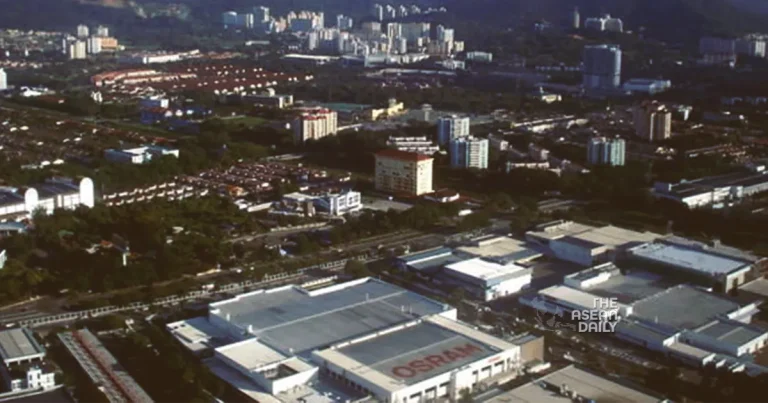4-11-2023 (KUALA LUMPUR) Malaysia is set to secure a significant share of DHL’s €350 million (S$507.5 million) five-year investment in its South-east Asia supply chain business, with Penang emerging as the primary beneficiary of this substantial commitment. The region has witnessed a surge in investment, especially in the semiconductor sector, due to the adoption of an “omni-sourcing” strategy by businesses looking to diversify their supply chains in line with the China+1 policy, aimed at reducing risk. This approach is of particular importance to the semiconductor industry as it seeks to mitigate trade barriers imposed by the United States on Chinese imports.
As geopolitical tensions escalate, driven in part by the ongoing US-China “chip war,” businesses are realigning their supply chains to source crucial components from outside of China. Malaysia, with its moderate costs, a robust labor force, and excellent air and sea transport connectivity, has emerged as a key destination for such diversification efforts.
In the past five years, Penang, often referred to as Malaysia’s “Silicon Valley of the East,” has witnessed a doubling of its exports, reaching RM463 billion (S$133.5 billion) in 2022, largely driven by the electronics sector. Integrated circuits alone accounted for more than 40 percent of the total export value, with other electronic products, including telecommunications equipment, scientific instruments, photocells, and more, contributing to nearly four-fifths of all exports.
DHL Supply Chain (DHL SC) marked the initiation of its operations at its fourth logistics hub in Penang’s Bayan Lepas industrial zone, codenamed PLH4, in 2023. Furthermore, the logistics giant is gearing up for the launch of its fifth hub in Penang, worth RM150 million, scheduled for 2024. Over the next five years, DHL SC plans to add nearly 50 percent more floor space, totaling 217,300 sq m, with two of the four new facilities to be situated in Penang, as part of a €131 million investment in Malaysia.
The ongoing tensions stemming from the US-China “chip war” have accelerated the shift towards omni-sourcing, marking a substantial transformation in global supply chains. As Deputy Minister for Investment, Trade, and Industry, Liew Chin Tong, explains, this transition involves a comprehensive restructuring of supply chains to source essential inputs efficiently from regions other than China, making Malaysia a pivotal destination.
The COVID-19 pandemic ushered in a new normal, characterized by physical distancing, leading to increased demand for electronic devices that support contactless interactions. However, the pandemic also disrupted production capacity due to forced closures and reduced operations. Penang was not immune to these challenges, with semiconductor firms experiencing bottlenecks related to the shortage of essential parts rather than labor.
DHL SC Asia-Pacific CEO Javier Bilbao emphasizes the pandemic’s role in highlighting the critical importance of logistics. The logistics industry shifted from being taken for granted to a pivotal driver that sustained global operations during lockdowns.
DHL SC’s substantial investment underscores Malaysia’s potential for manufacturing growth. Singapore is poised to receive the next largest portion of the investment, amounting to €104 million.
Malaysian logistics players have also profited from the country’s industrial expansion, exemplified by Infinity Logistics, which saw a remarkable rise in its stock value after listing in Hong Kong, even amid the pandemic.
DHL SC stands out through its swift adoption of cutting-edge digitalization. During a recent media tour of its PLH4 hub, advanced technology, including robots and customized forklifts, was employed to enhance efficiency and precision. The semiconductor industry, in particular, benefits from these advancements, where precision on a nanometer scale is essential for operations.
In the words of UWC’s Deputy Chief Executive, Matin Ng, the sensitivity of the equipment and components in the semiconductor industry demands precise handling, which goes beyond conventional logistics practices.




